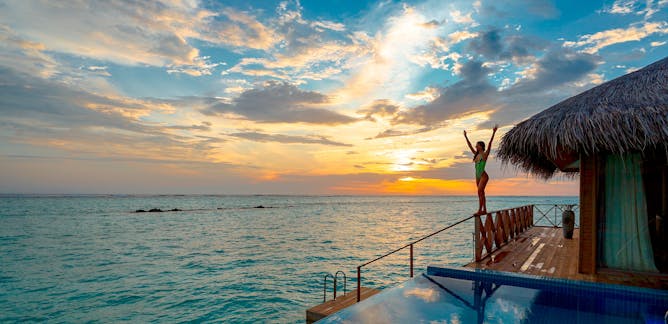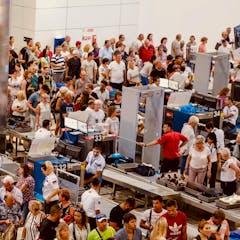
Articles on Sustainable tourism
Displaying 1 - 20 of 35 articles

As detailed in a June 2023 event in Grenoble, France, business schools hold partial responsibility for the longstanding behaviour of multinational corporations (MNCs) in indigenous territories.

Some work is already being done to enhance the tourism sector’s environmental sustainability.

Tourism must be economically, environmentally and socially sustainable. To this end, and given the sector’s weight in the economy, participatory governance in which there is room for all citizens is essential.

Heading on holiday soon? Here’s some tips for making your holiday greener.

Big resorts, cruise ships and visitor numbers are all up for debate across the Pacific, but economic pressure may test how post-pandemic reality lives up to the sustainability rhetoric.

The Covid-19 pandemic has the potential to make tourism more sustainable in Africa, improving the lives of local communities rather than just catering to international visitors.

Volunteer tourism, or ‘voluntourism’, is on the way back as borders open. But critics say the largely unregulated industry is overdue for change.

Some tourist destinations are very good at distracting from their questionable approach to civil liberties.

Cruise liners are back and demand is reportedly strong. But given their environmental impact and relatively low economic benefit, how sustainable is this kind of tourism?

Tourism, when co-created with refugees and asylum-seekers, can be a powerful tool for dismantling anti-immigrant attitudes.

A return of mega cruise liners would go against the government’s express desire to create a new, sustainable tourism model.

With tourism operators desperate for the return of international visitors, the industry’s challenge now is to build a new, sustainable model.

Derby in northeast Tasmania should be a story of hope for mining communities seeking to transition to a sustainable future. But logging threatens that vision.

The Māori world view provides a viable framework for building a new tourism model that prioritises quality over quantity.

Our analysis shows most tourist accommodation — be it Airbnb or traditional hotel accommodation — comes with sizeable greenhouse emissions.

A departure tax based on length of stay, not distance travelled, would be a more effective sustainable tourism strategy.

Given its environmental damage, tourism must seriously reconsider its purpose in a post-pandemic world.

Urat village is one of Indonesia’s many potential for rural tourism. However, study finds that indigenous people still feels left out to develop their own tourism business in their own areas.

The travel crisis caused by COVID-19 is also an opportunity to end the worst excesses of international tourism for good.

Developing countries that depend heavily on tourists need international support, and more sustainable offerings for the future.
